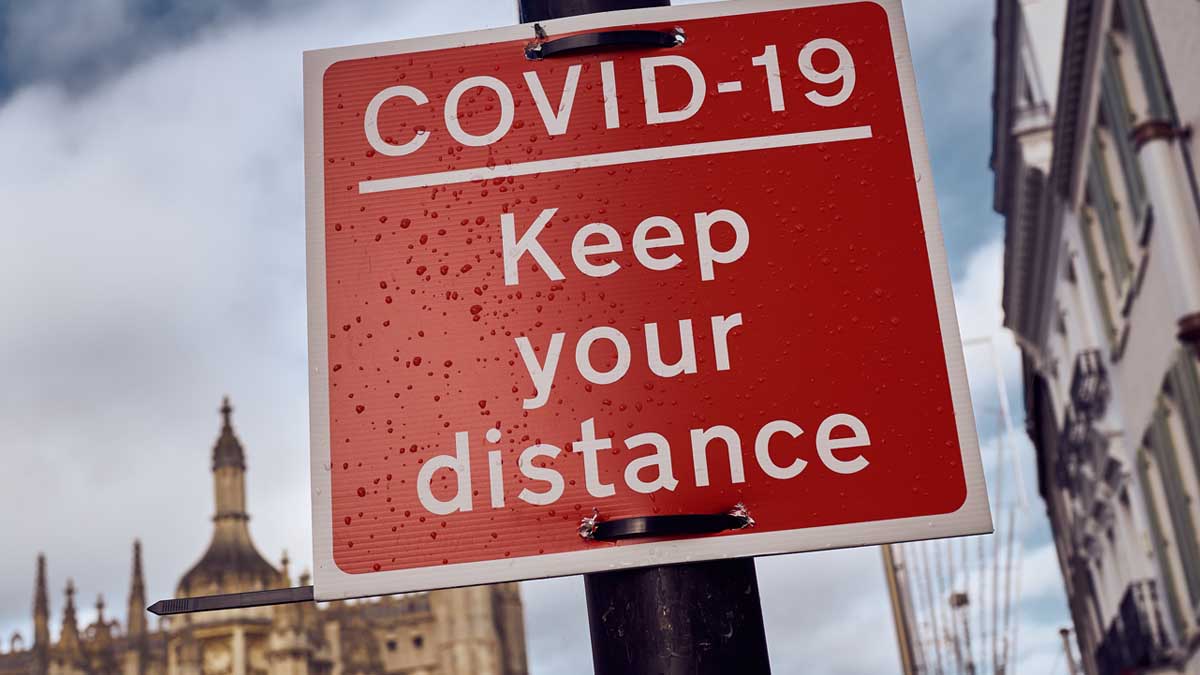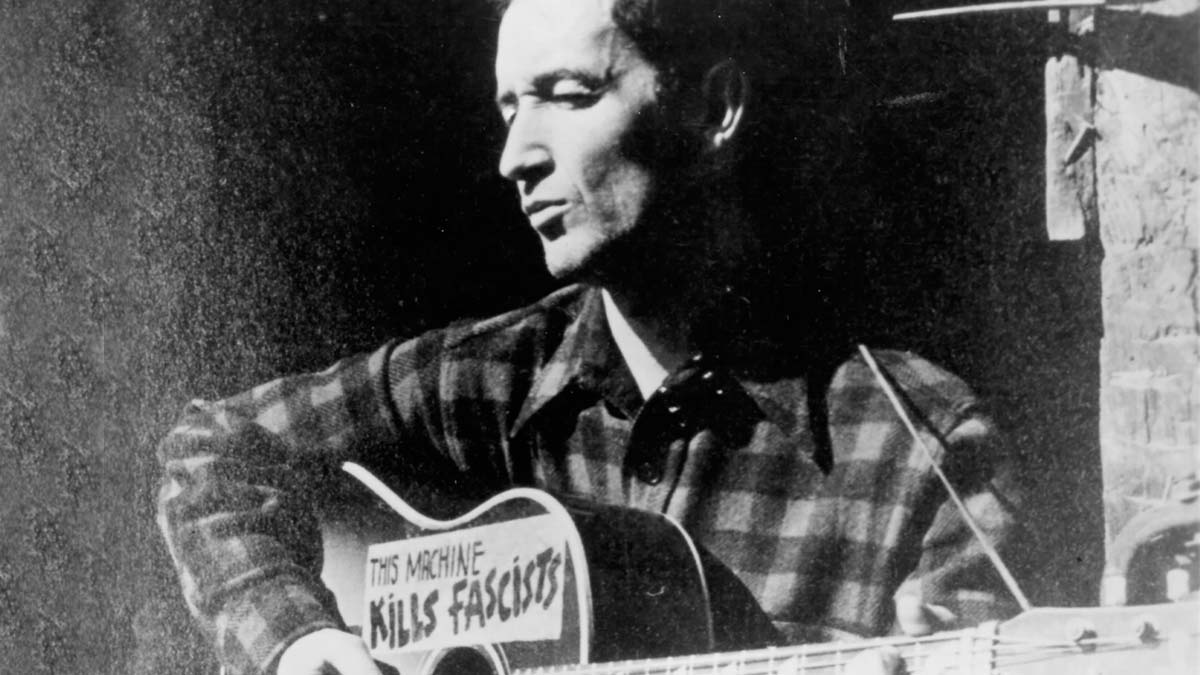Essential mental health tips for musicians: how to cope with lockdown and isolation to maintain well-being and creative focus
Now more than ever is the time to take good care of your mind and seek help if needed

With Covid-19 currently keeping everyone at home, this is a particularly testing time for musicians, especially since live performances – which are often a source of expression as well as work – are no longer an option.
The world in lockdown also means more time spent in your own head, which means that keeping your mental health in check is more important than ever.
If you are a musician struggling with mental health, there are many ways you can help yourself and get help from those around you. I’ve outlined some of the issues I’ve encountered and compiled some tips that you can apply at any time, plus some unique to our current situation with Covid-19 restrictions.
Being a professional musician is what some people refer to as a ‘jobby’ (job-hobby). This comes from the fact that the hours aren’t necessarily “normal”, the gig life requires a vast amount of time spent at bars, clubs etc, and for a lot of people; music is just fun.
Anyone can access a musical instrument and the tools to play it, and for some people this might be relaxing. Perhaps even therapeutic. Not something you would associate with “work” or a “grind”.
To tell someone you make music for a living might evoke in them thoughts of unadulterated joy, relaxation or pleasure. And while these emotions might be true of the music itself, or the atmosphere of the gig, it’s often a whole different deal for the people behind it.
A 2019 survey conducted by Record Union showed that 73 per cent of independent musicians suffered from symptoms of mental illness, including heightened anxiety and depression
Firstly, the lifestyle of a musician is hard. There are no two ways about it. You spend years becoming proficient, and then longer still finding your way in the professional world. Even taking the leap to choose to play music for a living involves sacrifice.
Get the MusicRadar Newsletter
Want all the hottest music and gear news, reviews, deals, features and more, direct to your inbox? Sign up here.
There are no safety blankets within the music industry. If you don’t work, you don’t get paid. Simple as that. If you choose to do this instead of working somewhere with regular pay, holiday and a pension – on some level – you’ve made a financial sacrifice already.
Another key aspect is collaboration. Whether that collaboration is between bandmates, or a solo artist and their business management; it is essential because one person simply cannot do everything. Even the most talented artists have people answering emails and analysing finances for them.
What collaboration then entails is co-operation. And for co-operation to flourish, all parties need to be ready to question themselves. If no one person knows everything, then all people must be open to all things, right?
Then you have to consider the creative process. Oftentimes, music comes from a place of great emotional depth within the author. As Jason Isbell stated in his 2016 MusicRadar interview; “I think the more honest you are with your audience, the more you’ll connect with them… You’ve got to let yourself be honest, even when it’s difficult. Most importantly when it’s difficult. The hardest things, they always work out for the best.”

• Read more: What help is available to musicians during the second national lockdown in England.
Creating music involves taking your deepest emotions and broadcasting them for literally anyone to hear – intimidating, to say the least!
We can start to see key themes: sacrifice, self-doubt, self-reflection and insecurity. The reality is that these are as necessary to the life of a musician as they are damaging.
A 2019 survey conducted by Record Union showed that 73 per cent of independent musicians suffered from symptoms of mental illness, including heightened anxiety and depression. Given what we’ve looked at so far, this doesn’t seem surprising.
There are communities and organisations out there that exist solely for the purpose of helping musicians out
You are not alone – look for key sources of help
First and foremost: If you are struggling, remember that you exist within a community of people who are all in the same boat. There are communities and organisations out there that exist solely for the purpose of helping musicians out.
The Musicians’ Union and HelpMusiciansUK are the two biggest. Both offer incredible amounts of resources and information. In fact, both organisations recently offered musicians one-time payments in order to help losses caused by the Covid-19 outbreak.
Talk, talk and talk
One of the first pieces of advice I got as a budding musician in Bristol was that “the hang” – just hanging out with other musicians and chatting – is second only to the music itself in terms of importance.
It’s certainly true, I don’t know any other community that loves to hang out as much as musicians! But this goes further: if you’re struggling, remember that there are literally thousands (approximately 50,000) of other people in the same boat as you. Chatting about it and validating what you’re going through is an important resource that you need to use – especially in times of isolation, when there’s way more time to be spent in your own head.
Stay positive – what you’re doing is a blessing
This one is important. On a regular basis, you must remember how lucky you are to be in a position that music is a key part of your life. If you’re making money from it, even if it is only just enough, there is a raw beauty in that, and nobody can take it away from you.
Exercise your musical muscles!
According to the Anxiety/Depression section of the NHS Website: “Any type of exercise is useful, as long as it suits you and you do enough of it," says Dr Alan Cohen, a GP with a special interest in mental health.”
For myself, and most musicians I know, exercising musically – practising and seeing results – yields the same mental benefits as a workout.
Simply start with a song, rudiment, or idea that you can’t play. Record your first few tries. Keep practising until you are able to do it with ease. Look back to that original recording, compare it with your current state and there you have it! I
t’s worth noting that the hardest thing about this is starting. So set yourself a goal to just begin the process and see where that takes you!
Notice if you are falling into traps
It is very easy to fall into old habits. If drinking, eating badly, using drugs or smoking are things you are used to doing; try and force yourself to acknowledge the correlation between these habits and negative mental states.
These habits are associated with the lifestyle of a musician and for some, may be intertwined the the life. But if you choose to break them, you are giving yourself something wholly positive to focus your energy on.
Go back to your roots
One thing that always helps me is to think retrospectively for a moment about the journey. Playing drums for a living was first a childhood dream, then an adolescent goal, and now an adult reality. I need to remember to be proud of myself for that.
As Ross Craib said in his piece 10 Things Touring Musicians Need To Know: “I realised that through all the personal and musical struggles, I had achieved my dreams – I was living them right then and there and continue to live them – my job is my passion! I've now vowed to remind myself more often and I encourage you to do the same – this is why we play.”
Create a routine for yourself.
Being your own boss, as freeing as it is, has certain drawbacks. If there’s only yourself to answer to, it is tempting to be lenient. If this leniency stretches too far it can turn into a lack of productivity, which leads to less financial and emotional stability.
Having some sort of day-to-day work ethic is important. If I give myself a work schedule for the day, it helps me to organise my time productively. The sense of accomplishment gained by task completion is very gratifying, and this in turn calms my anxiety. Which leads me nicely onto my next point…
Woody’s Rulin’s

For me, one of the greatest sources of inspiration comes from the folk legend Woody Guthrie. Every year, on January 1st, my friend and bass-playing genius Chris Axe (real name) sends me this picture.
It’s Guthrie’s inky, dusty journal, dated 1st January 1943. In it he’s written his “New Year’s Rulin’s”, and it is a goldmine for any musician. Especially when you consider that this was written by a struggling musician, during the Second World War.
Here are a few cherry-picked, simple tips from the man himself:
1. Work more and better.
2. Work by a schedule.
8. Write a song a day.
15. Learn people better.
17. Don’t get lonesome.
18. Stay glad.
QuaranTIPS
Finally, for anyone struggling particularly with being a musician during quarantine, here are some tips:
• Remember that this will pass. We are all in this together, and every other musician is in the same boat as you. Try to find peace in the knowledge that you are not experiencing this alone.
• Appreciate the hunger you have right now. If you’re desperate to play a show, take that energy and use it to build as best a future as you can. Speak with your promoters, booking agents and venue managers to come up with prospective plans. Having things to look forward to is important.
• Practise everything! Keep your mind occupied and active in as many ways as possible. Be thankful that you have the time to do this, and you live in 2020 when access to literally any information is possible.
Jai is a drummer and producer, who has worked with Afrika Baby Bam, Jay Z, Tyler the Creator and more. When he's not in the studio or away on tour, Jai writes for MusicRadar, specialising in drums, touring and mental health within the music industry. Outside of music he enjoys coffee, video games, sports and dogs.
“It didn’t feel like being in the room with a 17-year-old. I’d try something and she’d say, ‘You might want to reconsider that.’ And she’d be right”: Songwriter Eg White on how Adele took some “very boring chords” and turned them into an “explosive” hit
“I actually specifically remember making a deal with myself": Billie Eilish reveals what she had to do in order to become “looser and jazzier” with her vocal delivery










